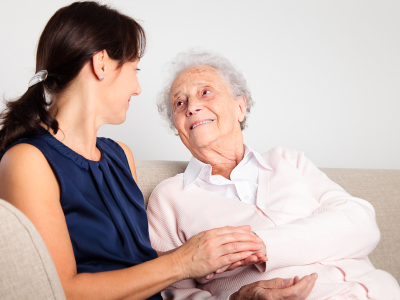Signs and Symptoms of Osteoporosis

Generally, bones are constantly regenerating, but this process slows down considerably in the latter years of life – in fact, 1.5 million Canadians over the age of 40 report having been diagnosed with osteoporosis. . One of the tell-tale signs of osteoporosis is that bones fracture easily, due to their reduced density. Bones can become weak and brittle. The condition affects mainly the spine, hips and wrists. Chronic back pain is also a sign of the disease. Gender, medical history and age are a determining factor as to whether an individual can suffer with osteoporosis. Of Canadians diagnosed, 29% are women over the age of 50, and 33% are men over the age of 50.
Prevention and treatment of osteoporosis usually incorporate both an active lifestyle as well as calcium enhancing supplements. Lifestyle changes have had favorable results for osteoporosis sufferers. These changes include increased exercise, a balanced diet, a drastic decrease in alcohol and caffeine levels, decrease in smoking, more exposure to sunlight and reducing the possibility of fractures.
Hairline breaks are one of the types of fractures caused by osteoporosis, which will only show on x-rays and often go overlooked. Another common type of fracture, crushed spinal fractures, cause crumbling of the spinal column and are the forerunner to a bad posture. Osteoporosis can cause an obvious height loss of the individual as a result of the compression and deterioration of the vertebrae.
Some of risk factors that contribute to osteoporosis are:
- Aging,
- Hormonal changes or menopause due to a drop in estrogen in women, and testosterone in men,
- Smoking (about 19% of Canadians with osteoporosis report smoking daily),
- Low calcium intake,
- Excessive caffeine or alcohol use (about 12% of Canadians with osteoporosis report drinking alcohol daily),
- Low level of Vitamin D,
- Low body mass,
- Hereditary conditions
Some of the signs and symptoms associated with osteoporosis (or bone density loss) are:
Back pain caused by fractures and/or crumbled vertebra,
- A stooped posture,
- Gradual loss of height,
- Bone fractures for no specific reason,
- Receding gums,
- Decreased grip strength,
- Brittle bones,
- Decline in general fitness
If you are concerned that your aging loved one is showing signs or symptoms of osteoporosis, contact a doctor immediately. With proper treatment, medication and lifestyle changes, the bones can be strengthened and the risk of fractures decreased. For more information about the home health care services Bayshore can offer to complement your osteoporosis treatment, contact us today 1-877-289-3997.
